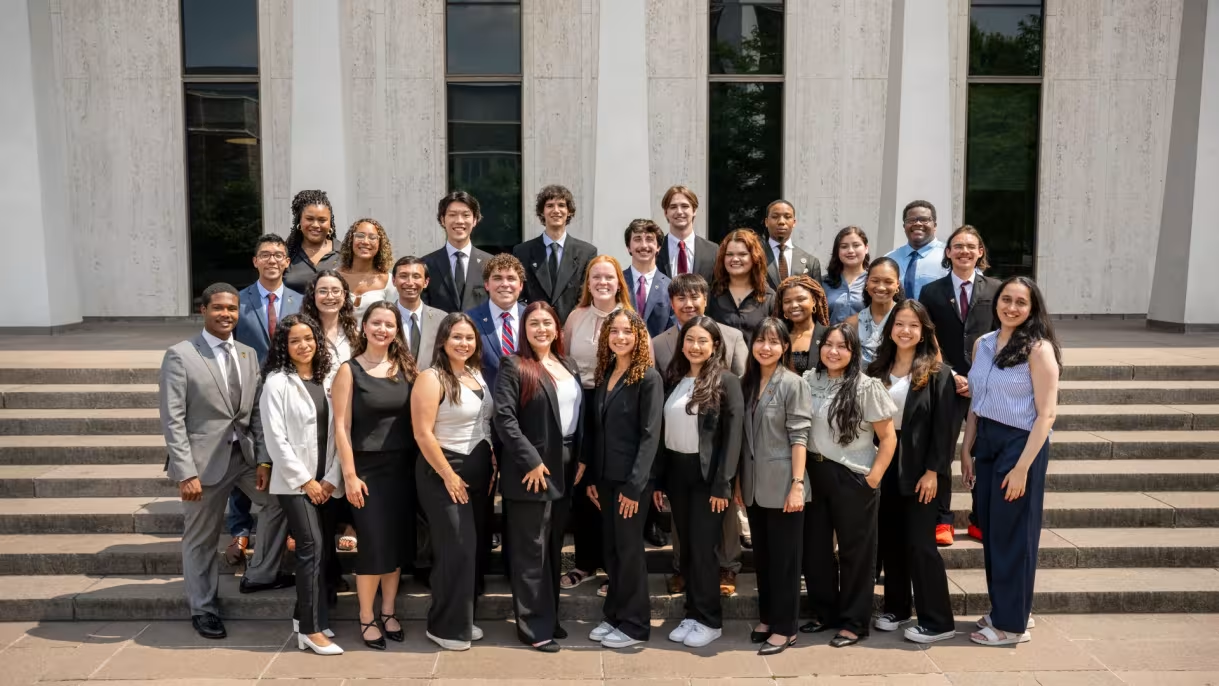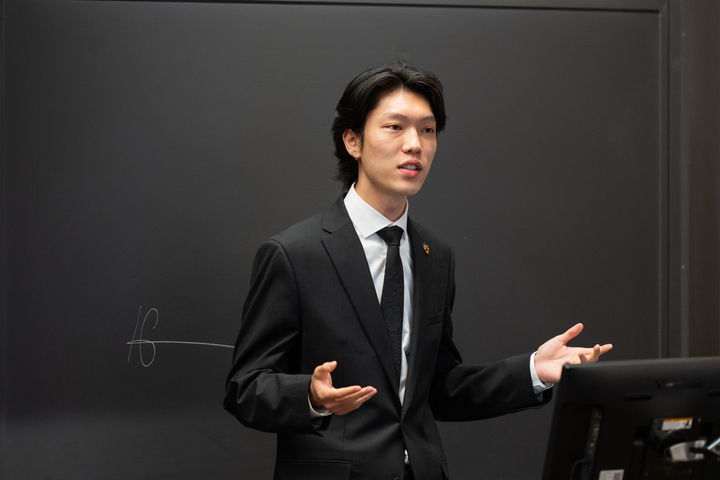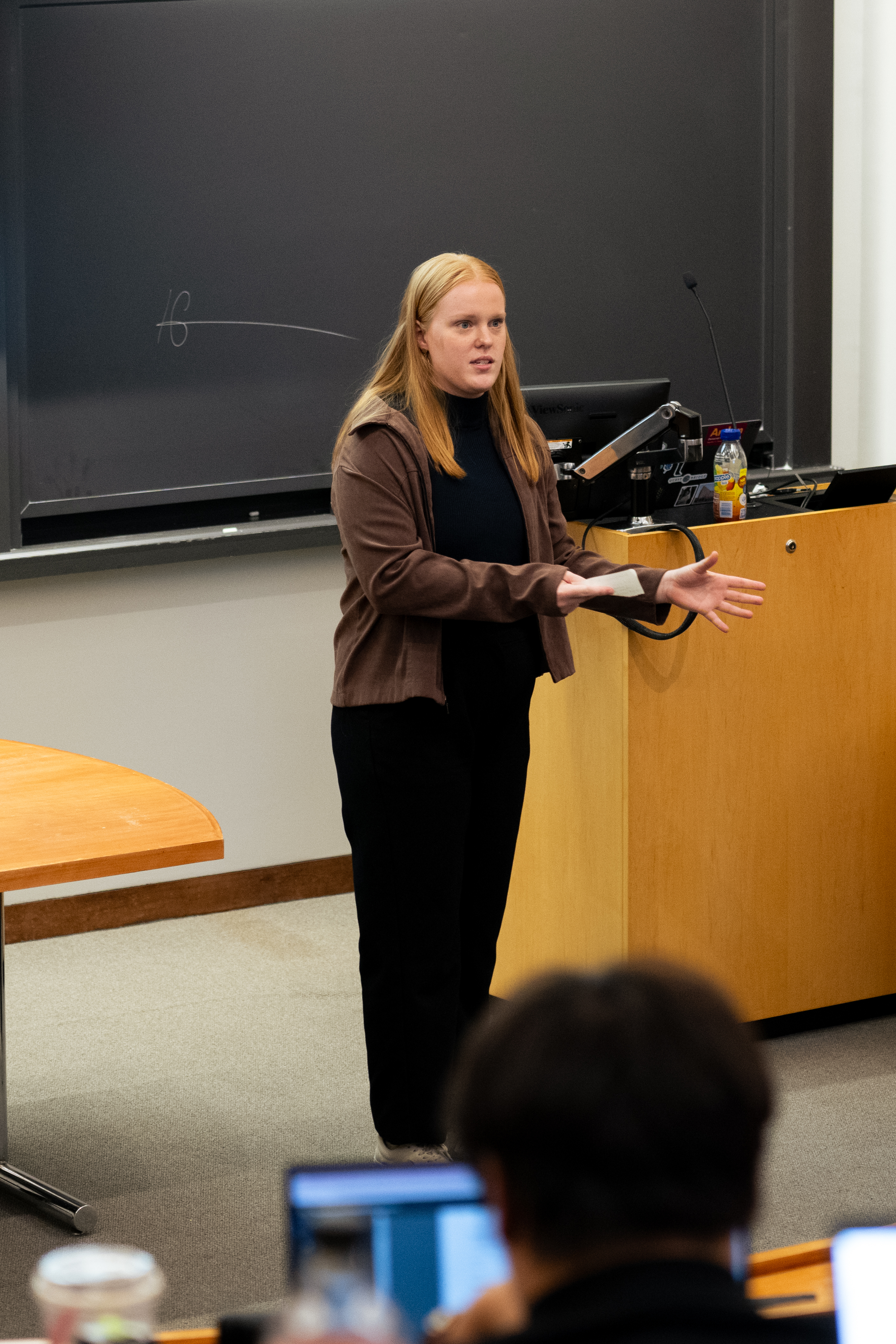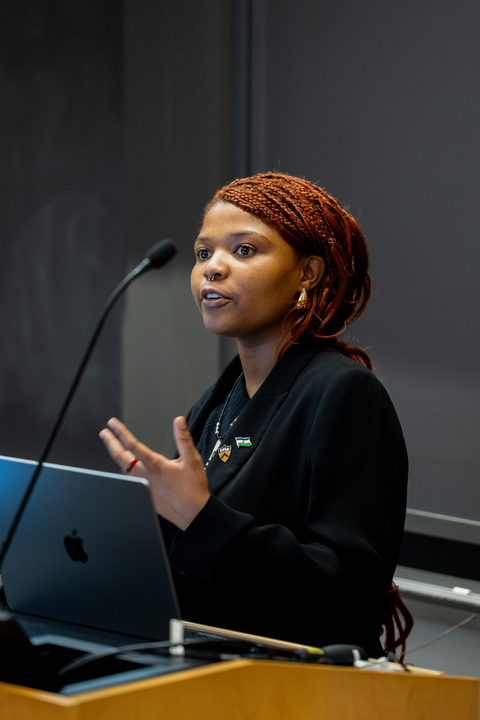

Princeton Junior Summer Institute Prepares Rising College Seniors for Careers in Public Policy
Since 1985, the Princeton School of Public and International Affairs has hosted the Junior Summer Institute (JSI) as part of its proud tradition of promoting diversity at Princeton University and in the public service arena. For nearly 40 years, students from diverse backgrounds and perspectives with a wide range of life experiences have come to campus to further their commitment to public service.
Stemming from the Public Policy and International Affairs Program (PPIA), JSI is open to rising college seniors at U.S. accredited colleges or universities who demonstrate academic aptitude and a passion for policy. JSI serves as a pipeline to the policy world for students from underrepresented communities and teaches skills essential for policy analysis and development. The goal of the program is to prepare students for graduate study and careers in public policy.
This year, 30 students, 20 of whom are first generation, from 19 states and 26 universities completed classes in microeconomics, statistics, and data science (R coding), and pursued a course centering on domestic or international policy. At the end of the summer program, students presented policy research on topics important to them and their future aspirations.
Below, members of the JSI program reflect on their summer at Princeton SPIA.
 Samuel Lee, Rice University
Samuel Lee, Rice University
“I spent most of my undergraduate years focused on anthropology, political science, and law, and knew little about public policy. However, I found an interest in studying urban transportation policies and how it interacts with accessibility issues and socioeconomic mobility. “Growing up as a low-income individual in car-centric cities, I was unable to afford a car. This made accessing opportunities like work, networking events, and extracurricular activities extremely difficult. The very mode of transportation that promised some Americans the ‘freedom of movement’ stranded thousands of others – many of whom are from disadvantaged backgrounds.
“My goal is to work in public interest law and public policy to advocate for a more diverse and active transportation network throughout American cities. I want to ultimately work in litigation and policymaking to advocate for new urbanist projects that diversify transportation options available to the public.
"Simply put, the overall JSI experience was enriching. I had experience working with policymakers and doing policy research, but my overall collective understanding of the ins-and-outs of public policy was a little lacking. Through this program, I have been able to learn so much about the public policy field and its various nuances and layers. Public policy is extremely complex on both a micro and macro level. It will be interesting to see how I can apply what I have learned to various aspects of my life.”

Laken Chapin, Grand Valley State University
“The overall experience has been like nothing I’ve ever experienced before. It was incredibly robust, challenging, and unique in so many ways. While we were challenged in the classrooms with rigorous academic concepts, I also felt challenged to grow as a person. I can accredit that to my peers — they have been the highlight of this program. Entering week one as strangers, to saying tearful goodbyes to each other last Saturday, I can say that I have met people who changed my life for the better and pushed me to become the best version of myself. I also met people doing great work in the policy field. Getting to meet people doing the work I want to do someday made my dreams seem a lot more tangible and I left feeling inspired and supported.
“My career aspirations have developed a lot while at JSI. I am studying accounting for my undergraduate degree and I have developed a deeper longing to enter into policy after working with tax and financial policies. In the future, I see myself working to support rural infrastructure and/or in spaces that support low-income families. I hope to start out doing research on topics like this before moving into government work in the future.
“For one of my final projects, I had the chance to write a policy memo for a cause I cared about: making menstrual hygiene products more available in my local community. A couple of cities in Michigan had already passed ordinances to provide menstrual products in public restrooms, so I drafted a proposal to my city commission to do the same. I aim to explore sending my proposal to the city commission upon my return.
“I can confidently say that JSI has changed my life in so many ways, and I am so grateful for the summer I had.”
 Joy Mopeli, Occidental College
Joy Mopeli, Occidental College
“I met incredible people who are extremely motivated and curious — this made forming connections very natural. I felt challenged by my peers to rethink my approach to public service and inspired to continue learning deeply and broadly. This was important as the courses got more difficult and the support from my classmates was crucial to me getting through the program.
“I am determined to pursue a career in sustainable African anti-poverty development, and in the long run, hope to work for an institution like the African Union. JSI was critical in helping me navigate whether I wanted to position myself as a practitioner or a policymaker. It was relieving to see the lines blurred for many of the policymakers who came to speak to us, such as the pre-doctoral tracks, fellowships that primarily involved fieldwork/community development roles, and others within large regional development groups.
“During the program, I met various inspiring professionals who work in areas I aspire to work in, and others I had not considered as thoroughly but now do. I met a former South African foreign service diplomat, people in development and tech across Africa, U.N. officials, and others whose advice broadened what I think global health and African development work can look like. I feel more comfortable pursuing my passion for research while still confident in how I can find roles in governance to remain involved in policy-making decisions.”
To learn more about the program and to inquire about applying to next year’s cohort, click here.

